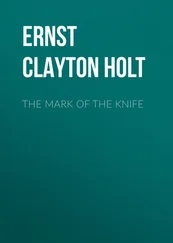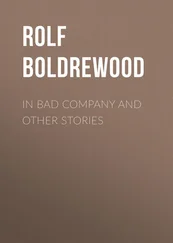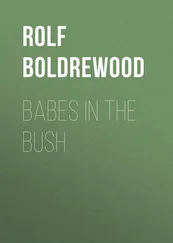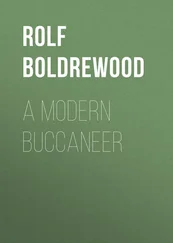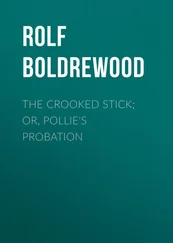Rolf Boldrewood - War to the Knife
Здесь есть возможность читать онлайн «Rolf Boldrewood - War to the Knife» — ознакомительный отрывок электронной книги совершенно бесплатно, а после прочтения отрывка купить полную версию. В некоторых случаях можно слушать аудио, скачать через торрент в формате fb2 и присутствует краткое содержание. Жанр: foreign_antique, foreign_prose, на английском языке. Описание произведения, (предисловие) а так же отзывы посетителей доступны на портале библиотеки ЛибКат.
- Название:War to the Knife
- Автор:
- Жанр:
- Год:неизвестен
- ISBN:нет данных
- Рейтинг книги:4 / 5. Голосов: 1
-
Избранное:Добавить в избранное
- Отзывы:
-
Ваша оценка:
- 80
- 1
- 2
- 3
- 4
- 5
War to the Knife: краткое содержание, описание и аннотация
Предлагаем к чтению аннотацию, описание, краткое содержание или предисловие (зависит от того, что написал сам автор книги «War to the Knife»). Если вы не нашли необходимую информацию о книге — напишите в комментариях, мы постараемся отыскать её.
War to the Knife — читать онлайн ознакомительный отрывок
Ниже представлен текст книги, разбитый по страницам. Система сохранения места последней прочитанной страницы, позволяет с удобством читать онлайн бесплатно книгу «War to the Knife», без необходимости каждый раз заново искать на чём Вы остановились. Поставьте закладку, и сможете в любой момент перейти на страницу, на которой закончили чтение.
Интервал:
Закладка:
"Apparently not," said Sir Roland, noting the girl's well-developed figure, regular features, and animated expression.
In truth, they were both handsome girls, though their complexions showed a clear but healthy pallor, as distinguished from the rose-bloom of their British sisters. If Sir Roland had not been dead to all sympathetic consideration of the great world of woman, it would have occurred to him that a man might "go farther and fare worse" than by choosing either of these frank, unspoiled maidens, rich in the possession of the charm of youth and the crowning glory of the sex – the tender, faithful heart of a true woman.
But to his dulled and disturbed senses, not as yet recovered from the merciless blow dealt him by fate, no such appreciation of their youthful graces was possible.
He was courteous to the utmost point of politeness, scrupulously attentive to their queries about this, to them, unfamiliar land of their forefathers; careful also to requite the consideration with which he felt they had regarded him. But they might have been any one's maiden aunts, or indeed grandmothers, for all the personal interest which he felt in them. Indeed, when Mrs. Lexington caught her eldest daughter's eye and proceeded to the drawing-room, he was distinctly conscious of a feeling of relief.
Then, as he drew up his chair at the suggestion of his host, he began to show increased interest, as the question of a desirable colony to betake himself to was mooted.
"You are not in the same position as many young men whom Frank and I have met. You are accustomed to a country life, and have a practical knowledge of farming. Your cattle and sheep (we went through them this morning) do the management credit, and the bailiff tells me that you directed it in a general way. The crops and the grass lands are A 1. So you won't have so much to learn when you've thought out the climate in Australia. May I consider that you prefer agriculture to a pastoral life?"
"I must say that I do, though I don't limit myself to any particular pursuit or investment. I should feel grateful for your advice in the matter."
"We are all New South Wales people, born there indeed, and probably prejudiced in its favour. It is the mother colony of Australia, and until lately the largest, so that there was always plenty of scope. We have never, like most of the larger pastoralists, had much to do with farming, preferring to buy our hay, corn, flour, and such trifles from the small settlers."
"The squatters, as I suppose they are called," interposed Massinger, who was beginning to be proud of his colonial knowledge.
"Well, not exactly," corrected the colonist. "The smaller holders are called farmers, or 'free-selectors,' having by a late Act of Parliament acquired the right of free choice over the Crown lands leased in vast acres to the squatters. They follow farming exclusively as an occupation, and are chiefly tenants, or men of small capital. The squatter, on the other hand, is the Australian country gentleman – the landlord, where he is a free holder. It is therefore the more fashionable pursuit, so to speak, and as such, has proved attractive to men like yourself, who commence colonial life with a fair amount of capital. Perhaps Frank will give you his views."
"I never could stand farming at any price," said the younger colonist. "I hardly know a turnip from a potato. My fancy has always been for the big outside stations. There's something to stir a man's blood in managing a property fifty miles square, with plain, forest, and river to match. Then twenty thousand head of cattle, or a hundred thousand sheep to organize a commissariat for, and an army of men to command! There's no time to potter about ploughing and harrowing, haymaking or reaping, in country like that. You might as well dig your own garden."
"But surely they are necessary occupations?" queried the intending colonist.
"Not to men with a million of acres or so in hand. They can't worry over details. We buy everything we want in that way, and have it brought to our doors, more cheaply than we could grow it. Our work in life, so far, is to produce cheap beef, mutton, and wool, to feed your people and for them to manufacture. That, I take it, is our present business, and anything that interferes with it is a loss to the empire."
"That seems a short list of products for a great country like yours. Couldn't you supply anything more from the land?"
"All in good time," said the young man, sipping his claret. "By-and-by, when labour becomes more plentiful and the population denser, we shall send you butter and bacon, cheese, honey, fruit, flour, sugar, wine, and oil – even rabbits, confound them! – by the million. These products, when we have time, and have overtaken the local demand, we can export by the shipload. A hundred thousand frozen lambs – that kind of thing – in one steamer."
"But you have said nothing about horses. Surely I have heard that your country is very suitable for rearing them?" asked their guest.
"Suitable!" ejaculated the young Australian, with more animation than he had previously expressed. "I should think so. Yet up to this day, though a fascinating pursuit, horses haven't paid so well as sheep and cattle. But our time is coming. I have always maintained that we could breed cavalry and artillery horses for all Europe – more cheaply, too, than any other country in the world; horses possessing extraordinary courage, stoutness, speed, and constitution. From the way in which they are reared on the natural grasses in the open air, they have the best feet and legs in the world. The Indian buyers find them more suitable for cavalry and artillery than Arabs or their own stud-breds, but as yet they only take a tenth part of what we could rear if the markets were more steady and assured. It will be proved some day that the English horse gains in stoutness in Australia after a generation, and I look forward even to our sending you back pure Australian thoroughbreds, equal in speed to their imported grandsires, but sounder, stronger in constitution, and with more bone."
As the descendant of Kentish squires spoke with heightened feeling upon what was evidently a favourite theme, Massinger could not help admitting that the speaker himself was no bad exemplar of the favourable conditions of a free, adventurous, roving life upon the Anglo-Saxon type. Frank Lexington was, indeed, as fine a man as you could make physically – a description once applied to him by an enthusiastic admirer at an up-country race meeting. Standing somewhat over six feet in height, he was admirably proportioned, and not less for strength than activity. His features were regular, approaching the Greek ideal in outline, while his steady eye and square jaw denoted the courage and decision which, young as he seemed, had been tested full many a time and oft. His hands, though bronzed and sinewy with occasional experiences of real hard work, were delicately formed, while his filbert nails, perhaps as true a test as any other of gentle blood and nurture, had evidently never lacked careful tendance.
Fairly well read, and soundly if not academically educated, he was but one of a class of the present generation of Australians who do no discredit to the imperial race from which they spring.
Before these reflections had come to a conclusion, however, Mr. Lexington rose, saying —
"Now that Frank has got to the horses of his native country, we had better adjourn the debate, if you won't take another glass of port, or his mother and sisters will be scolding us for staying too long over our wine."
Soon after their arrival in the drawing-room the opposition found a speaker.
"We thought you were never coming, daddy dear," said Miss Violet. "What in the world do men find to talk about when we're not there? I suppose, though, that you were giving Sir Roland a lecture on colonial experience, and Frank had fallen foul of the shooting and fishing topics, or, worst of all, the great horse question! Ah! I see you look guilty, so I won't say any more about it."
Читать дальшеИнтервал:
Закладка:
Похожие книги на «War to the Knife»
Представляем Вашему вниманию похожие книги на «War to the Knife» списком для выбора. Мы отобрали схожую по названию и смыслу литературу в надежде предоставить читателям больше вариантов отыскать новые, интересные, ещё непрочитанные произведения.
Обсуждение, отзывы о книге «War to the Knife» и просто собственные мнения читателей. Оставьте ваши комментарии, напишите, что Вы думаете о произведении, его смысле или главных героях. Укажите что конкретно понравилось, а что нет, и почему Вы так считаете.




